In the culinary world, the choice between gas and electric stoves can significantly impact your cooking style and results. While electric stoves are celebrated for their modern appeal and consistent low heat, gas stoves offer unparalleled benefits that cater to both amateur cooks and culinary professionals. This article explores the myriad advantages of gas stoves, emphasizing why they remain the preferred choice for those who cherish culinary precision and efficiency.
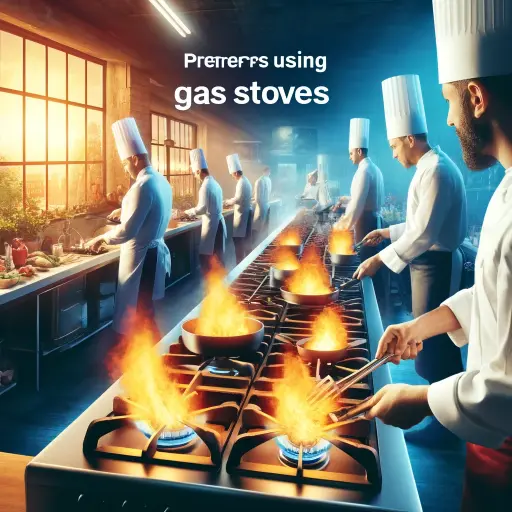
Gas stoves are renowned for their exceptional temperature control, allowing chefs to adjust the heat instantly to suit intricate cooking techniques. Whether you’re simmering a delicate sauce or searing a steak, the ability to change temperatures rapidly is a game-changer in kitchen dynamics. Moreover, gas stoves are often more cost-effective in the long run. Despite the initial setup costs, their operational expenses can be lower, especially with fluctuations in electricity prices.
Advantages of Gas Stoves
Below are some of the advantages offered by gas stoves to make our cooking experience easier and better.
Immediate Cooking Control
One of the standout features of gas stoves is their unmatched temperature control. Unlike electric stoves, which take time to heat up and cool down, gas stoves allow for instant adjustments. This immediate control is crucial for dishes that require precise temperature changes, offering a level of responsiveness that can significantly elevate the quality of cooking.
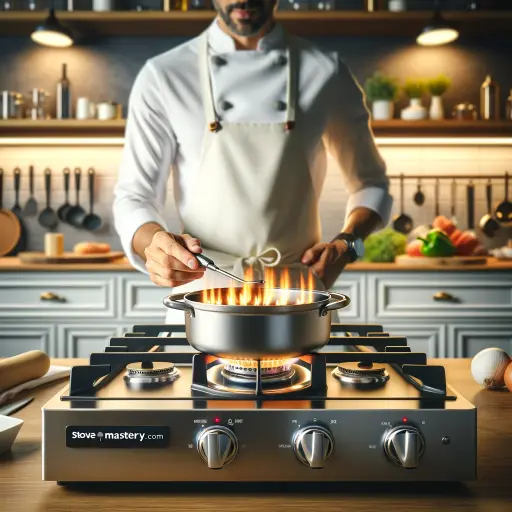
For example, when making sauces that demand a sudden reduction in heat to avoid curdling, or when searing meat where high heat is essential initially but needs to be quickly reduced to cook through without burning.
Consistency and Reliability
Gas stoves are inherently more reliable than their electric counterparts, especially in areas prone to power outages. Since they operate on natural gas or propane, your ability to cook is not hindered by electricity availability. This makes gas stoves a dependable option for those who live in regions with unstable electrical services or frequent storms.
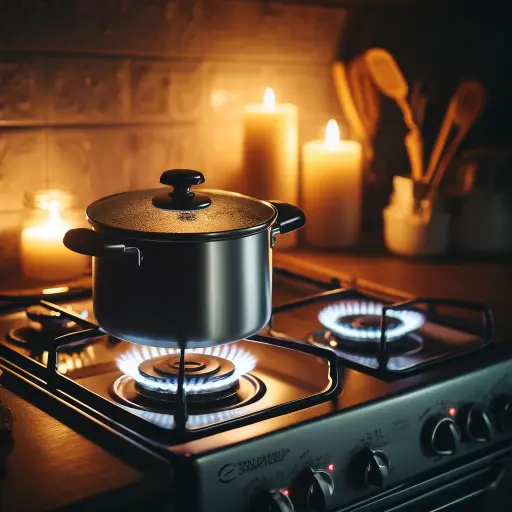
Furthermore, the consistency of flame provided by a gas stove ensures even cooking. Electric stoves, which cycle on and off to maintain temperature, can cause uneven heat distribution, leading to inconsistent cooking results.
Cost-Effectiveness and Efficiency
In terms of long-term savings, gas stoves have a significant edge. While the initial installation of a gas line can be higher, the ongoing operational costs are typically lower compared to electric stoves, particularly in regions where gas is cheaper than electricity.
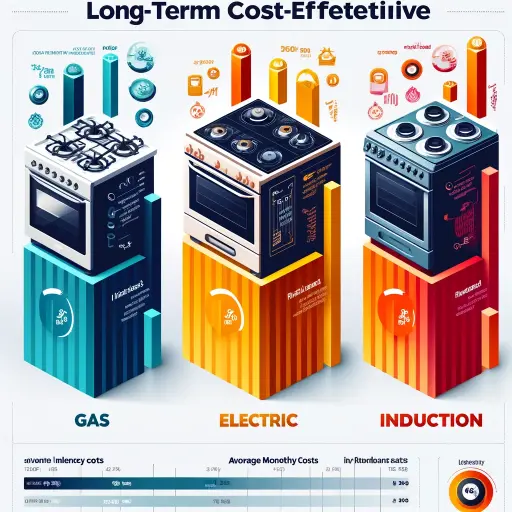
Additionally, the efficiency of gas stoves in heating and cooking speed means less energy is used overall. A study comparing cooking methods found that gas stoves are generally more energy-efficient, converting a greater amount of energy directly into heat at a faster rate than electric stoves, which can translate to savings on your utility bills over time.
Durability and Maintenance
The robustness of gas stoves is another key advantage. Generally, they boast a longer lifespan compared to electric stoves due to their simpler and more durable components. Gas burners, for instance, have fewer parts that can malfunction compared to the complex electrical elements found in electric stoves.
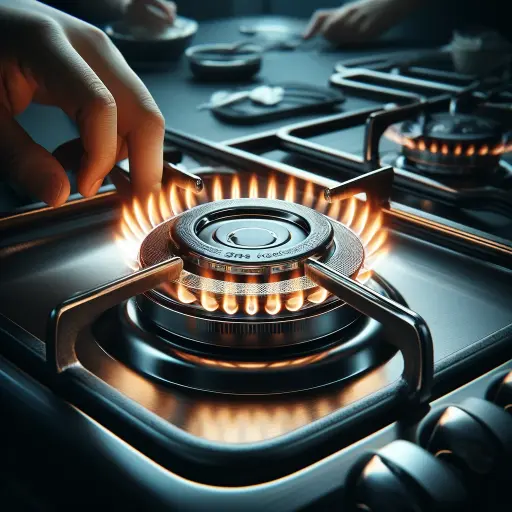
Additionally, maintenance and repairs, when needed, are often simpler and more cost-effective. For example, replacing a burner in a gas stove is typically a straightforward and inexpensive process, whereas repairing the heating elements of an electric stove can be more complex and costly.
Sensory Cooking Experience
Cooking on a gas stove offers a unique sensory experience that goes beyond just preparing meals. The immediate feedback provided by the flame—visible adjustments to the heat, the sound of the burner igniting, and even the subtle changes in aroma as the flame interacts with the cookware—enhances the act of cooking.
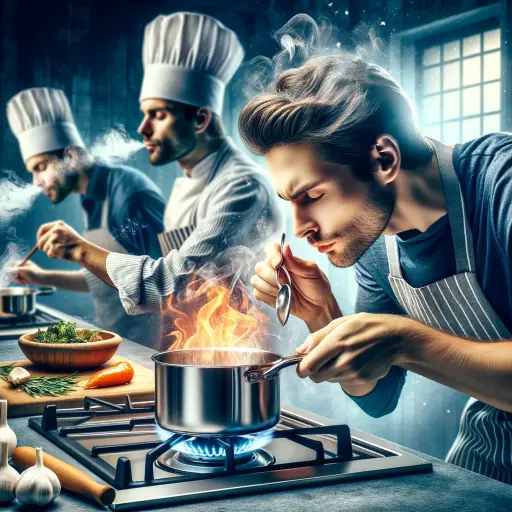
This tactile interaction allows for a more intuitive cooking process, where adjustments can be made based on sight and sound, rather than relying solely on pre-set controls or timers. Such an experience not only makes cooking enjoyable but also allows for better mastery of culinary skills as cooks learn to trust their senses.
Cooking Speed and Efficiency
Gas stoves excel in cooking speed. They heat up instantly and cool down quickly, reducing overall cooking time. This is particularly advantageous for busy households where time is of the essence. For instance, boiling water on a gas stove can be significantly faster compared to an electric stove, making it ideal for quick meal preparations.
This efficiency is not just about speed but also about energy usage. Because you can turn off the heat immediately without waiting for the element to cool down, less energy is wasted, contributing to overall kitchen efficiency.
Aesthetic and Functional Integration in Modern Kitchens
The aesthetic appeal of gas stoves often complements the functional design of modern kitchens. With options ranging from high-end stainless steel models to custom designs that include traditional elements, gas stoves can serve as a focal point in kitchen design.
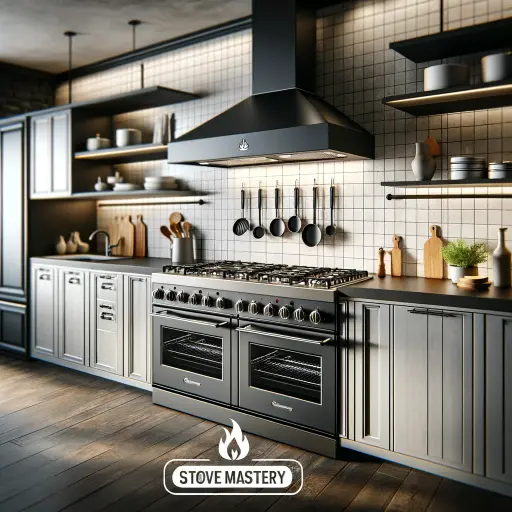
Moreover, their functionality is celebrated by those who enjoy cooking, as the flame allows for versatile cooking techniques—from char-grilling to flambéing—which are hard to replicate on an electric stove. The integration of gas stoves into kitchen design not only considers their practical benefits but also enhances the overall look and feel of the space.
Cultural and Professional Preferences
Culturally and professionally, gas stoves are often the preferred choice among chefs and culinary enthusiasts. Many professional kitchens opt for gas due to its superior control and flexibility, which are crucial in high-stakes cooking environments.
At home, cooking enthusiasts often emulate professional chefs, preferring gas stoves to achieve similar culinary results. This cultural preference is also rooted in traditional cooking practices across various cuisines where the direct flame is essential for achieving authentic tastes and textures.
Environmental Considerations
While gas stoves are efficient and preferred for various reasons, it’s important to consider their environmental impact. Compared to electric stoves, gas stoves emit combustion byproducts directly into the kitchen, which may require better ventilation to maintain air quality.
However, advancements in gas stove technology are addressing these concerns, with newer models featuring lower emissions and improved efficiency.
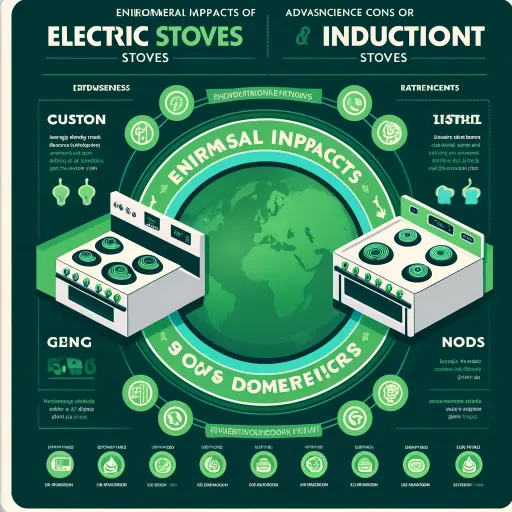
Additionally, in regions where electricity is generated from renewable sources, the environmental impact of using electric stoves might be lower, making them a more sustainable option in such scenarios.
“Check out Consumer Reports for comprehensive reviews on the latest gas stoves.”
Comparative Analysis: Gas Stoves vs. Electric Stoves vs. Induction Stoves
Here is the quick comparison of different types of stoves in use:-
| Feature | Gas Stove | Electric Stove | Induction Stove |
|---|---|---|---|
| Temperature Control | Excellent control with instant heat adjustment. | Slow response to temperature changes. | Superior control with precise and instant heat adjustments. |
| Cooking Speed | Heats up and cools down quickly, reducing cooking time. | Slower to heat up and cool down compared to gas and induction. | Fastest heating times, boiling water in nearly half the time of gas or electric. |
| Energy Efficiency | More efficient than traditional electric stoves but less than induction. | Less efficient due to residual heat loss. | Most energy-efficient, with minimal heat loss. |
| Initial Cost | Moderate, but may require gas line installation if not already present. | Generally lower initial costs than gas or induction. | Higher initial costs due to advanced technology. |
| Operating Cost | Lower than electric in areas where gas is cheaper. | Higher in regions with expensive electricity. | Lower energy consumption can mean lower costs, depending on local electricity prices. |
| Durability | Durable with simple components that are easy to maintain and repair. | Good durability, fewer maintenance needs than gas. | Very durable with minimal physical components to fail. |
| Cooking Experience | Direct flame allows for versatile cooking techniques. | Even heating, good for baking and slow cooking. | Fast and responsive cooking, excellent for precise cooking techniques. |
| Safety | Open flame can pose a hazard; requires ventilation. | No open flame, generally safer than gas. | Safest option with no open flame and heat only when compatible cookware is used. |
| Suitability for Power Outages | Operates without electricity, beneficial during outages. | Requires electricity; not usable during power outages. | Also requires electricity; not usable during power outages. |
| Environmental Impact | Emits combustion byproducts, requires ventilation. | Carbon footprint depends on electricity source (higher if non-renewable). | Lower emissions if powered by renewable energy sources. |
conclusion
In conclusion, gas stoves offer a compelling array of benefits that cater to a variety of cooking preferences and needs. From their superior control and efficiency to their ability to integrate seamlessly into both modern and traditional kitchens, gas stoves stand out as a preferred choice for both professional chefs and home cooking enthusiasts.
The tactile feedback and immediate temperature control enhance the cooking experience, allowing for culinary precision that electric stoves often cannot match. Additionally, the cultural and aesthetic appeal of gas stoves, combined with their cost-effectiveness and long-term durability, makes them a wise investment for anyone serious about cooking.
While considering environmental impacts, it’s essential to weigh the benefits of gas stoves against your local energy sources and kitchen requirements. Ultimately, choosing a gas stove could mean embracing a cooking tool that not only meets your practical needs but also enriches your daily culinary adventures. This exploration of gas stoves’ advantages clearly illustrates why they remain a dominant force in kitchens around the world.